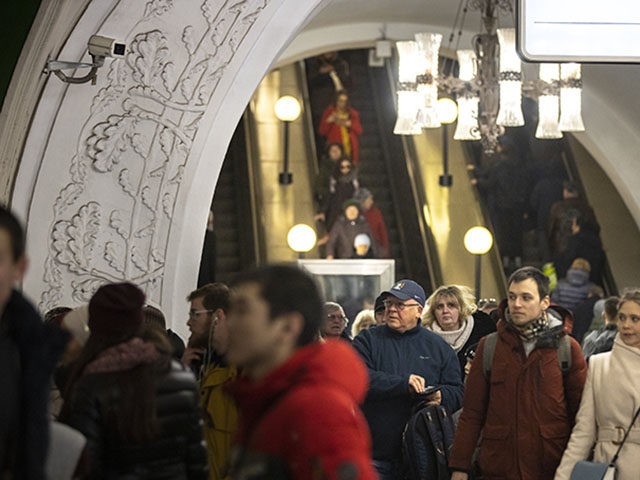Facial recognition technology in the Moscow Metro has aided in the arrest of more than 900 people over the past six months, the Metro press service told Russian state media outlet Tass on Tuesday.
The current system does not have access to the personal information of Russian citizens, the government insisted, and only matches the faces of Metro passengers to known wanted persons.
“It only checks people who are wanted, if a person is in the law enforcement database. If they are not there, there is nothing to compare to,” Metro security service head Andrei Kichigin said, adding “it does not know any names or surnames.”
Moscow Deputy Mayor Maxim Liksutov announced in September 2020 that the city would install turnstiles that accept payment via facial recognition at stations citywide, scheduled to see service by the spring of this year.
Liksutov emphasized that payment using facial recognition would remain optional. However, such a payment option will require access to a greater store of personal information than the current criminal lists.
The implementation of this system comes amid concerns over the ways Moscow will use personal information. In November 2020, the Russian Internet freedom news portal Open Media reported that Moscow was gathering vast stores of personal information to build a “social credit system” similar to the one China uses.
The Open Media report revealed Moscow had been gathering info on gender, age, and income level from users of its government website since 2017. The government further invested millions in IT to build out the system and cultivate personal profiles, which it could peruse for “signs of loyalty.”
Social credit systems surveil people and gather their personal information to assess their performance as citizens, with a particular emphasis on their loyalty to the regime employing the system. Using algorithms, authoritarian governments can rate their citizens by loyalty, civic participation, or any other metric. Citizens deemed insufficiently loyal, or otherwise less than exemplary, might lose access to major public services and benefits, have restrictions placed on their employment, or even lose their right to travel within the country or abroad.
China and its communist government already make extensive use of a social credit system. Apart from just monitoring individual citizens, however, China’s model includes corporate entities. A company with a poor social credit score might find itself under tighter regulations, subject to higher taxes, or even dismembered on the orders of state regulators.
After Chinese business mogul Jack Ma publicly criticized China’s tough regulatory practices in October, the Alibaba frontman disappeared from the public eye for months while regulators broke up the Ant Group, another of Ma’s enterprises. Though he made a brief digital appearance in January, Ma’s conspicuous absence from the public stage continued to prompt speculation that the government had “re-educated” him. In late January, such speculation led to reports that the Chinese government sought to access the trove of consumer data from Alibaba and the Ant Group, which could significantly bolster the existing social credit system.
The arrest figures from the Moscow Metro come as Russia dramatically escalates its arrests of dissidents. The country has experienced nationwide protests since its arrest of prominent Kremlin critic Alexei Navalny in January upon his return to the country after recuperating from an alleged poisoning attempt in a German hospital.
Russia’s federal government has waged an intense pressure campaign against social media outlets, urging them to block the spread of anti-regime material online. The state media monitor Roskomnadzor went after TikTok in January for allowing content that incited minors to illegal gatherings, itself a crime in Russia.
The regime has also targeted journalists for satirical posts only tangentially related to Navalny and the protests surrounding his incarceration.

COMMENTS
Please let us know if you're having issues with commenting.